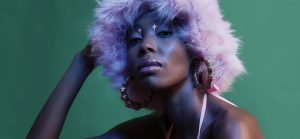
Soaring ascents, the kind that can take an artist from obscurity to stardom in what seems to be the blink of an eye, don’t occur often, in dance music or elsewhere – those who are lucky enough to have that experience often disappear just as quickly. But there’s little chance of a quick fade for South Africa’s Palesa Desiree Shilabje, the DJ and producer known to the world as DESIREE, who in just a few short years has proved to be one of the international festival circuit’s most exciting new stars. Here, Bruce Tantum hears her story, and about how her evolution through music has been as organic as they come
“I’m finally home.” Those three words are among the first that the South African DJ and producer Palesa Desiree Shilabje utters when DJ Mag catches up with her in Johannesburg. The sense of relief in her voice is unmistakable, and no wonder — she’s just back from a pair of dates, one in Istanbul with the Circoloco crew and the other at Miami’s Factory Town, where she played on a line-up that featured Rüfüs Du Sol and Chloé Caillet, among other notables. That trip, which by our calculations added approximately 20,000 miles to her frequent flyer program, was just the latest world-spanning journey for the woman known to the world as DESIREE, in a two-year period that’s been stacked with them.
Shilabje’s rise has, to the outside observer, been remarkable. Her first DJ excursion outside of South Africa wasn’t until the tail-end of 2019, beginning with a trip to Zambia for a program prepared by a nonprofit organisation to empower female DJs from Southern Africa. Her first “proper” international gigs, as she calls them, weren’t until 2021; her debut release, the ‘Femme Tech’ EP, was only just released in June of 2022. Yet she’s spent the past two years playing clubs such as New York’s Avant Gardner and Ibiza’s DC-10, festivals like Day Zero in Tulum and Sonus in Croatia, and a slew of Circoloco dates — her itinerary is head-spinning. It’s all been enough to earn her the 2023 Future Star award in our recent Top 100 DJs issue, and deservedly so. Of course, what appears to be a meteoric ascent from the outside feels a bit different from the inside.
“It’s very subjective,” Shilabje says. “Yeah, things have happened quite quickly for me, and especially the last two years have been very overwhelming — in a good way. But I’ve been doing this now for five years. I guess if you’re an old school DJ who has been doing this for 20 years, then you’ll think, ‘okay, this has been super-fast’. But in this day and age, you have people who go viral, and then they’re everywhere in the space of a few months.” Has she ever had her own viral moment, her own brilliant blast-off sending her into the stratosphere? “No, I haven’t!” she exclaims with a laugh. “Everything that’s happened, let’s say, has happened very organically.”
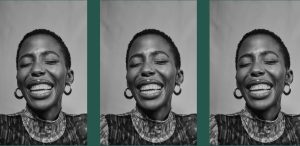
Shilabje’s sound is rooted in Afro house, not exactly a shock considering her South African heritage. But her DJ sets, at least the ones she plays outside of her home country, are infused with a pan-global kind of house sound — deep, full of feeling, and hard not to like — that transcends both geography and genre. “I’m really just a music lover,” she says. “Many different sounds inspire me, especially the more I travel and listen to other DJs. I’m discovering more and more things that I’m incorporating into my sets. But even from the very early stage, like if you listen to my very first mix on SoundCloud, it was always kind of eclectic, and not so heavily Afro house. I like to mix things up.”
Still, she makes time for her homegrown music in her sets, at least the ones she plays on the international stage. “I will always come back to Afro house — especially South African Afro house,” Shilabje explains. “I think there is a distinction in terms of the production, the sound design — and most importantly, the rhythm — that you find in South African Afro house, that you don’t really find in producers from places in Europe. They try to emulate it, but I don’t know… it’s just not the same, you know?”
Shilabje grew up in Ivory Park, a township within the Johannesburg city limits. “Being African and being in an African household and being surrounded by African people, we sang, we danced… it’s kind of in our blood,” she says. “And my uncle would always be playing some nice jazz. But no, I didn’t have any family who were into music, in terms of like playing an instrument or being a singer or something like that.”
As a teenager, her own tastes — Radiohead, Nick Cave, the Red Hot Chilli Peppers and the like — made her something of an outsider from the start. “I don’t know how a 15-year-old Black girl from a township in South Africa was banging Radiohead,” she says. “There’s no one from the people that I grew up with — my friends, my family, absolutely no one — who listened to the kind of stuff that I grew up listening to. I can tell you now there’s no one who even knows who Radiohead or Nick Cave are! So yeah, I was a bit of a weirdo — but I think that’s why I naturally got into DJing. I’ve always been very curious about digging for new music and introducing it to my peers.”
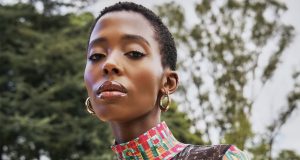
“We party differently in South Africa. The BPMs are not very high, and people really dance with their whole bodies, like, with their hips and their waist — and in order to move with your hips and your waist, you can’t have a 137 BPM song.”
Her musical taste wasn’t the only aspect of her life that made her an outsider. “During apartheid, there was something called spatial planning,” she says. “They’d put the Black people into townships, which were next to the city centre and next to the suburbs — but not really that close, because they didn’t want to live with the Black people. But my mom and my dad, thankfully, invested in my education, and I was able to go to a school in the suburbs, in the wealthier area. I had to commute quite a distance to my high school. That meant my friends from school, the people who I was spending most of my time with, were from a different economic background than I was. I was close to them, but I would still feel a bit different from them. And whenever I would go back home, of course, I just always kind of felt disconnected from my peer group.”
As is true of just about anyone with an internet connection or a radio, Shilabje was already familiar with the broad strokes of electronic music, but it was during her high school years that she first began to develop a meaningful relationship with the music. She was obsessed with fashion — she took up modelling, on a part-time basis, a few years later — and would check out the runway shows online, which would often feature house, techno, and general electronica as their soundtracks. That relationship would turn into a love affair when she enrolled in the University of Witwatersrand in Johannesburg, working toward a Bachelor of Commerce in politics, philosophy, and economics.
“I’m really into politics and the economy,” she says. “I don’t watch Netflix — I watch documentaries, and I watch the news. That’s my form of entertainment. So my goal when I was choosing politics, philosophy and economics was to become a diplomat, or maybe a journalist on the political side of things.” But she felt that, just maybe, something was missing from her plans. “I had never really had the privilege of studying something artistic,” she continues. “In South Africa, it’s a privilege to learn how to play the piano or do ballet or whatever, and I didn’t come from a background that allowed that, so I never really envisioned myself having a career that was artistic, and I had a feeling that something else, something bigger was waiting for me.” That “something else” began to reveal itself through her extracurricular activities. “I was a late bloomer,” she admits. “I didn’t really start going out and partying until I was in university.”
Shilabje specifically remembers an epiphany at the Kitchener’s Carvery Bar nightspot, situated just north of Johannesburg’s central business district, that serves as a hub of the local scene; the veteran DJ and producer Da Capo was on the decks. “That was this moment where I was like, ‘wow, this music is incredible,’” she recalls. “It was fusing the electronica that I was used to from listening to Radiohead, but also bringing it back to Africa, fusing it with percussive sounds that you would get in traditional South African songs. That’s where I kind of fell in love with Afro house.”
She dove in and began to do her research — “Like I said, I’ve always been into digging for music,” she remarks — and started to develop her own tastes. Eventually, she built up her store of dance music knowledge to the point that she began to second-guess the DJs that she was hearing. “I would go out, and I would listen to other DJs and be like, ‘Ah, why did they keep playing the same songs? I have so many songs that I would play at this point in time!’” she laughs. “And that’s what got me into DJing.”
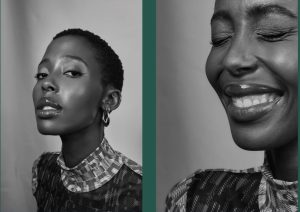
Soon, she was toying around in her bedroom, recording mixes and posting them on SoundCloud. Her first public outing on the decks came via a local shisa nyama. “A shisa nyama is like a carwash,” Shilabje says, “and then you can buy meat and barbecue your meat, and then there’s music and beers and people kind of chill and dance. I didn’t have access to CDJs, so I asked them if I could come play, really just practice and make my mistakes while they’re still setting up, when there’s no one there. I did that a couple of times, but I wouldn’t call them my first real gigs.”
The practice paid off, and she soon was landing dates of a more official nature — like The Rhythm, a Johannesburg event series helmed by the Johannesburg standby Punk Mbedzi that, by coincidence or kismet, also boasted one of the artists that got her into DJing in the first place. “I was super excited,” she says, still sounding enthused, “because I was sharing a line-up with Da Capo! But in reality, there are not a lot of opportunities in South Africa, not a lot of gigs for the amount of talent that’s around. So for one of my first public gigs to be with someone that I looked up to… there were just not that many places to play, you know?”
Another life-changing gig was at Kitchener’s, for a party called Surreal Electronica organised by a pair of Johannesburg notables, Swizz and Jackie Queens. According to Shilabje, the latter has been instrumental in her rise. “Jackie has been quite a figure in my story,” she says, “because that was where she first heard me play, and we’ve been working together ever since. She’s someone who has been present and who has added a lot of value. For example, the ‘Femme Tech’ EP was released on her label. She is definitely a key figure in the development of my career.”
Still, the DJing world, in Johannesburg and elsewhere, is a bit of a male-centric one, especially among those with the power. “Some people can think that the lines are blurred — like a promoter will be reaching out to you, and you’re thinking, ‘Oh, this person wants to work with me strictly from a professional perspective’. But they are not necessarily looking for that, and they are just using their power to get whatever it is that they want to get outside of a professional setting. I have had my fair share of things like that —and I think any woman in this industry goes through the same thing. But generally, across the world, it is getting better. There are more and more women, and more and more representation of other minorities as well.”
In early 2020, Shilabje’s DJ card was beginning to fill up, and her profile within Johannesburg was beginning to expand — but DJing still wasn’t the main thrust of her life. “I was in-between these different things — like, I was still doing a little bit of modeling. I also did two internships that were related to my degree — and then, there was also the DJing. I was just in-between these jobs, on a part-time basis for all of them,” she says. “So when the pandemic hit, DJing was still kind of like a hobby. DJing still wasn’t something that was so prominent in my life.”
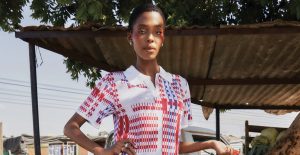
“I don’t know how a 15-year-old Black girl from a township in South Africa was banging Radiohead. There’s no one from the people that I grew up with — my friends, my family, absolutely no one — who listened to the kind of stuff that I grew up listening to.”
The following year, when lockdowns were (barely) beginning to loosen up and travel was starting to become possible again, Shilabje went on holiday in Europe and rustled up a few gigs — including at the Ibizan party palace Ushuaïa, opening for Black Coffee. On the face of it, that sounds like a life-altering assignment for an unknown DJ — or perhaps not, to hear her tell it. “It was not Ushuaïa as we know it,” she explains. “There was still Covid around, so some shows were happening but were very small, more like seated kind of shows. For three hours, there was no one there the whole time — literally. So at that point, I don’t think I really believed that this could be a career.” That revelation wouldn’t have to wait long — but first, she had something to share with the world.
In April of 2021, Shilabje published a post to her Instagram account. “I’ve been wanting to speak freely about this since 2016,” it began. “I have finally gathered the courage to do it… In 2016 at the age of 20, I gathered the courage to visit a gynecologist for the first time out of concern… I had never ever had a period in my life. I always thought it would come but it never did… till this day.” After a series of tests, she was diagnosed with androgen insensitivity syndrome.
“XX chromosomes are found in ‘females’ whilst XY chromosomes are found in ‘males,’” the post went on to say. “I have XY chromosomes, like males. I also was not born with a uterus. Instead, I had internal testes. So I was born with balls lol except they never dropped but stayed inside my body. My body never responded to the XY chromosomes and testosterone which my body was producing which is why when I was born, I was externally 100% female. Nobody knew that I was genetically ‘male’ until I decided to go to the doctor at the age of 20… No, I’m not a man. I’m a woman. For clarity, my pronouns are she / her and I am an intersex woman.”
“When I found out initially, it was very hard for me, because I felt very alone. I had no frame of reference,” she says now. “When I would try to do research or try to find organizations that are doing activism for intersex people, there wasn’t really much, and I knew of no public person who was intersex, who I could read up on and follow. That really put me into a bad place with my mental health for two or three years after my diagnosis, I think mainly because I just felt alone.”
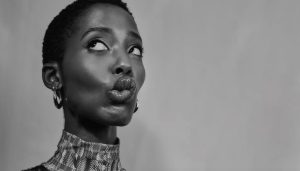
Since that post, she’s tried to make sure others don’t find themselves as alone as she was. “Especially now that I have this platform to speak up about it, if there’s an intersex teenage girl somewhere out there who’s doing research and they find me, maybe that can make them feel better about themselves and just feel normal — because we are normal,” she says. “It’s a natural thing that happens in biology, so it’s really nothing to be ashamed of.”
She feels the world is slowly catching up. “There’s definitely more representation, and more conversation about it, and more visibility and inclusion of intersex people in the LGBTQI+, community. People are curious, like, ‘What does the ‘I’ stand for?’ So yeah, I think it has improved significantly. But there’s still much more that can be done.”
In June of 2022, Shilabje’s debut release, the ‘Femme Tech’ EP, was released on Jackie Queens’ Bae Electronica label. The A-side, ‘Femme’, is a revelation — its thrumming synth, insistent vocal sample, and subtly Afro-flecked rhythm feel like the work of a veteran music maker. Soon after its release, it felt like it was everywhere — which, for Shilabje, came as a bit of a shock. “I mean, ‘Femme Tech’ was my first EP, I released it on a super small boutique label in South Africa, not a lot of funding behind it, and the response was just amazing,” she says. “Everything just kind of happened — I was ending up on playlists, just organically.”
The flip-side, the airy and lilting ‘Psilocybin’, also found favour among the world’s house aficionados. Shilabje is something of an acolyte. “I really believe in the power of microdosing, and the power of alternative natural medicine, for mental health purposes,” she says. “As an African person, we have traditional medicine that’s not necessarily what your traditional Western doctor would prescribe to you. But some of the medications that are used in Western medicine actually do come from indigenous types of medicine and herbs and so forth. I just think it’s a matter of time before you can go to a pharmacy or drugstore and pick those things up.”
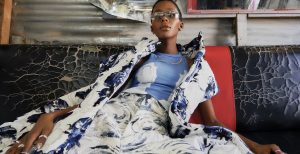
The thought that dance music could become an actual, real-deal career for Shilabje finally began to take hold a few months later, after a summer of gigs that saw her jetting back and forth between Ibiza, the European mainland, North America, and beyond. “Just seeing how my summer was, and the kinds of shows that I played — I think that’s what did it,” she says. “Like [UK festival] Lost Village, and just seeing the line-up of the artists that were on the bill, and seeing my name next to those artists — then I was like, ‘shit, this could be something!’”
Some of those shows were support dates with one or more members of Keinemusik, the DJ and production collective of Rampa, Adam Port, &ME, and Reznik. The crew has lent invaluable support to Shilabje in the time since — and early last year, she was tapped to remix their ‘Pussy Power’, an ethereal breakbeat track featuring Nomi Ruiz on vocals. Her version takes the track in a fully different direction — it’s still plenty laid-back, but she transforms the tune into a flowing house number, with what sounds like a marimba laying down a crisp counterpoint to Ruiz’s diaphanous voice.
The tune serves as a succinct indicator of the DESIREE production sound, a style that sometimes puts her at odds with the kind of events she’s been spinning at. “I’m mostly playing in clubs and electronic music festivals where people are expecting a big drop or something like that,” Shilabje says, “but I’m not making that kind of music. I’m just making what’s coming out of me. The problem is, sometimes I’m playing, and it’s 2am, and then I have people asking me, ‘Oh, why don’t you play something hard?’ I am a DJ before anything else, and I play according to the vibe, so it’s very rare that I can play the ‘Pussy Power’ remix, or my remix for LP Giobbi [July 2023’s ‘All I Need’], because I feel like they’re so chill.”
Back home though, the vibe is a bit different, a bit more conducive to the kind of music she’s been making. “In Europe, I find that people are more used to partying to more intense music. But we party differently in South Africa. The BPMs are not very high, and people really dance with their whole bodies, like, with their hips and their waist — and in order to move with your hips and your waist, you can’t have a 137 BPM song.” And the South African crowds love her as much as the rest of the world does. After a recent date in Cape Town, one of the party’s enraptured revellers posted the following bit of besmitten prose on Instagram:
She holds a kind of mystique.
She has unlimited prowess.
There is an omnipresence about her.
She is a star of the African sky.
SHE IS DESIREE
The party that inspired that love letter was MMINO, a new event series — the Cape Town gathering, which featured Kampire from Uganda’s Nyege Nyege crew, was just its second edition — helmed by Shilabje. One of her goals with the night is to broaden the aural appetites of South African clubbers, born in part of frustration with the constrictive expectations that are sometimes placed on South African DJs. “MMINO,” she enthuses, “is my baby! The purpose is to create a space in which electronic or dance music DJs can be fully themselves. Afro house is so popular right now, and I’ve found that a lot of the parties that are already existing in South Africa tend to be kind of restrictive for DJs, in terms of what they can play, or what are the different genres that they can dabble in. But me being the curious person that I am, and discovering more and more music, I want to form a community of people who are also curious, who also want more.”
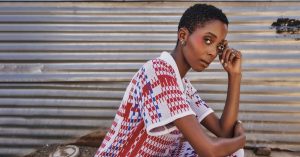
There’s another aim behind MMINO, which succinctly translates as “music” in the Sepedi language, as well. “South Africa, it’s a very unequal country, and there are also a lot of racial divisions,” Shilabje explains. “Most of the time in South Africa, either I’m playing for Black people or I’m playing for white people. Communities are not really mixing, largely because of our history, so I want to try to get these different people together. I just want to create a safe space that is inclusive and music-centered, so that we can forget about all the bullshit.” There’s a third goal as well. “I’m just trying to show people who DESIREE is!”
Considering she’s only been in the public eye for a few short years, Shilabje has made an impact that would be the envy of many long-time artists. But she’s far from done — there’s a somewhat hush-hush remix of a classic South African jazz song on the way, and another busy summer of festival fun, with a hope to add smaller headlining gigs to her live repertoire. She relates her personal experience to her goals as a DJ and producer. “I think that being an intersex woman, and kind of existing in this gray area in between male and female, I’ve kind of represented a mixture of polar opposites — and as a DJ, I feel like I’ve always tried to blend genres that you won’t necessarily hear other DJs blending. I’ve had a lot of people tell me, ‘Yes, you play Afro house, but you mix it with things that are so unexpected’. I think I’ve always been into putting things together that you wouldn’t traditionally find together, and making it work. I’m just trying to change that in the best way that I can.”
If she has anything to do with it, that change, in musical outlooks and beyond, is on the way.
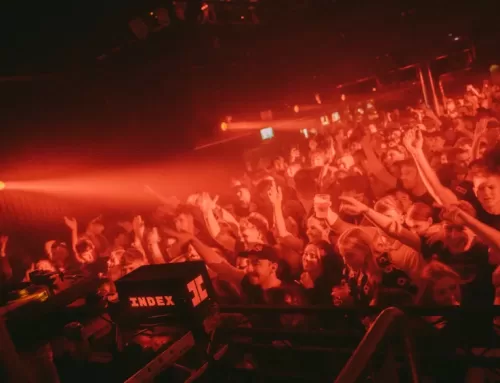
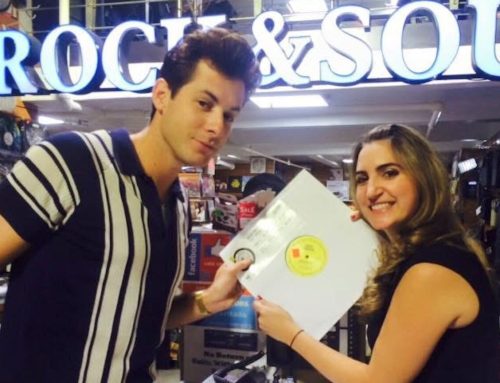
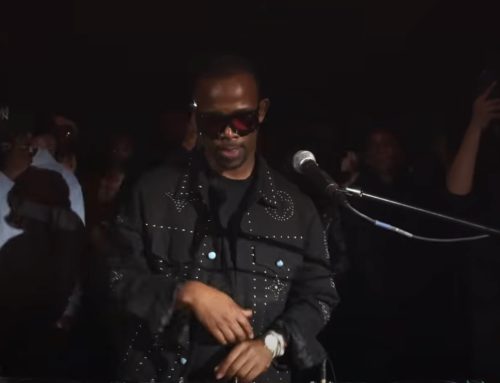
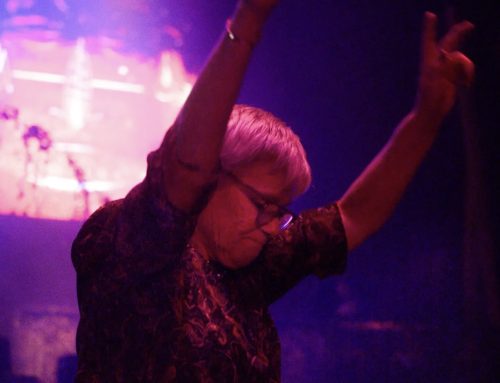

Leave A Comment
You must be logged in to post a comment.